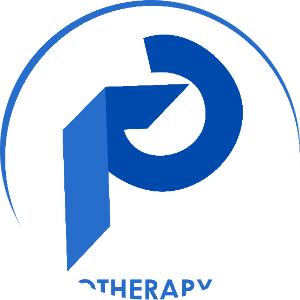
Physiotherapy CPD Courses in Philippines
Why Continuing Professional Development (CPD) Matters: A Complete Guide to Physiotherapy CPD Courses in the Philippines
In the dynamic field of healthcare, Continuing Professional Development (CPD) is essential for maintaining excellence, ensuring safe practice, and keeping abreast of global advancements. For Filipino physiotherapists and occupational therapists, CPD is not just a recommendation—it’s a regulatory requirement.
If you're a physical therapist or occupational therapist practicing in the Philippines, understanding the CPD framework is crucial for license renewal and career advancement. This blog provides an in-depth look at CPD, its significance, and how you can fulfill your requirements through online physical therapy courses, including free continuing education courses for physical therapy.
What is CPD and Why Is It Mandatory in the Philippines?
Continuing Professional Development (CPD) refers to the systematic maintenance, improvement, and broadening of knowledge, skills, and attitudes of professionals. In the Philippines, the Professional Regulation Commission (PRC) mandates CPD for all licensed professionals, including physiotherapists and occupational therapists, to ensure continued competence and improved patient care.
As outlined by the Philippine Physical Therapy Association (PPTA) on philpta.org, CPD is an essential part of professional life and is closely linked with career progression, license renewal, and global competitiveness.
Understanding the CPD Cycle, Audit Process, and PRC Requirements
The CPD Cycle
- Duration: A CPD cycle typically spans 3 years.
- Requirement: Professionals are required to accumulate 45 CPD units within that period for license renewal.
- Activities: CPD units can be earned through various PT courses, OT continuing education courses, or participation in conferences, seminars, and online learning.
Audit and Compliance
The PRC may conduct random audits to ensure compliance. Professionals are advised to:
- Maintain records of completed continuing education courses in physical therapy.
- Secure certificates from CPD-accredited providers.
- Present proof of learning outcomes and relevance to current practice.
Failure to meet CPD requirements may result in delayed license renewal or additional conditions set by the board.
Why CPD Matters: Benefits for Professionals and Patients
1. Improved Patient Outcomes
Engaging in physiotherapy courses or continuing education online courses for physical therapy ensures you stay updated on evidence-based practices, leading to safer and more effective patient care.
2. Career Advancement
Whether you're pursuing PT online courses or continuing ED courses for occupational therapy, CPD enhances your credentials and prepares you for leadership roles, teaching, or specializations.
3. Global Mobility
Many countries recognize CPD as a standard requirement. Keeping up with physical rehabilitation courses positions Filipino professionals for international practice.
4. Personal Growth and Adaptability
Healthcare is dynamic. CPD allows you to adapt to new challenges, technologies, and approaches such as tele rehabilitation and advanced manual therapy.
The Rise of Online Learning for Physiotherapists and Occupational Therapists
The global shift towards digital learning has transformed how professionals access education. Now, more than ever, online PT Courses and online physiotherapy courses are widely available and PRC-recognized.
Popular Formats Include:
- Self-paced video modules
- Live webinars and virtual workshops
- Assessment-based interactive learning
- Discussion forums and peer-reviewed tasks
Whether you’re looking for physical therapy courses online for free or specialized physiotherapist courses in neurorehabilitation, online learning offers flexibility for busy professionals.
Common Types of CPD Activities for Physical and Occupational Therapists
To fulfill your CPD units, you can choose from a variety of activities:
Formal Education
Non-Formal Learning
- Attendance at professional conferences
- Participation in research or publication
Informal Learning
- Peer learning groups
- Clinical teaching and mentorship
Online Courses
- Online physical therapy courses
- Courses for physiotherapy on topics like stroke rehab, manual therapy, and kinesiotaping
- Free continuing education courses for physical therapy for budget-conscious learners
Choosing the Right Online CPD Courses
When selecting a course, make sure it is:
- Accredited by PRC or recognized CPD providers
- Relevant to your clinical area
- Offers a certificate upon completion
Look for platforms offering physical therapy continuing education courses 2025 and beyond, ensuring long-term career development.
Conclusion: Empower Your Career Through Lifelong Learning
In the Philippines, Continuing Professional Development (CPD) is more than a professional obligation—it's a pathway to clinical excellence, better patient outcomes, and personal growth. By staying compliant with PRC and PPTA requirements, Filipino physiotherapists and occupational therapists not only renew their licenses, but also reaffirm their commitment to delivering high-quality, evidence-based care.
With the increasing availability of online physical therapy courses and continuing ed courses for occupational therapy, there's never been a more convenient time to upskill. Whether you're seeking advanced physio courses, looking to explore free continuing education courses for physical therapy, or simply aiming to fulfill your CPD units for the next renewal cycle, online platforms like Physiotherapy Online make learning accessible, accredited, and flexible.
Take the Next Step in Your Professional Journey
Start today with PT online courses, courses for physiotherapy, or continuing education courses in occupational therapy. Gain access to:
- Over 55 CPD-accredited courses
- Flexible, self-paced modules
- Certificates accepted for PRC license renewal
- Instruction from internationally renowned experts
Explore CPD-accredited courses now at PhysiotherapyOnline.net and keep your skills—and your practice—future-ready.
Note: For the most current and detailed information regarding CPD requirements and processes, please refer to the official Philippine Physical Therapy Association (PPTA) website.

Article by Physiotherapy Online
Published 26 May 2025